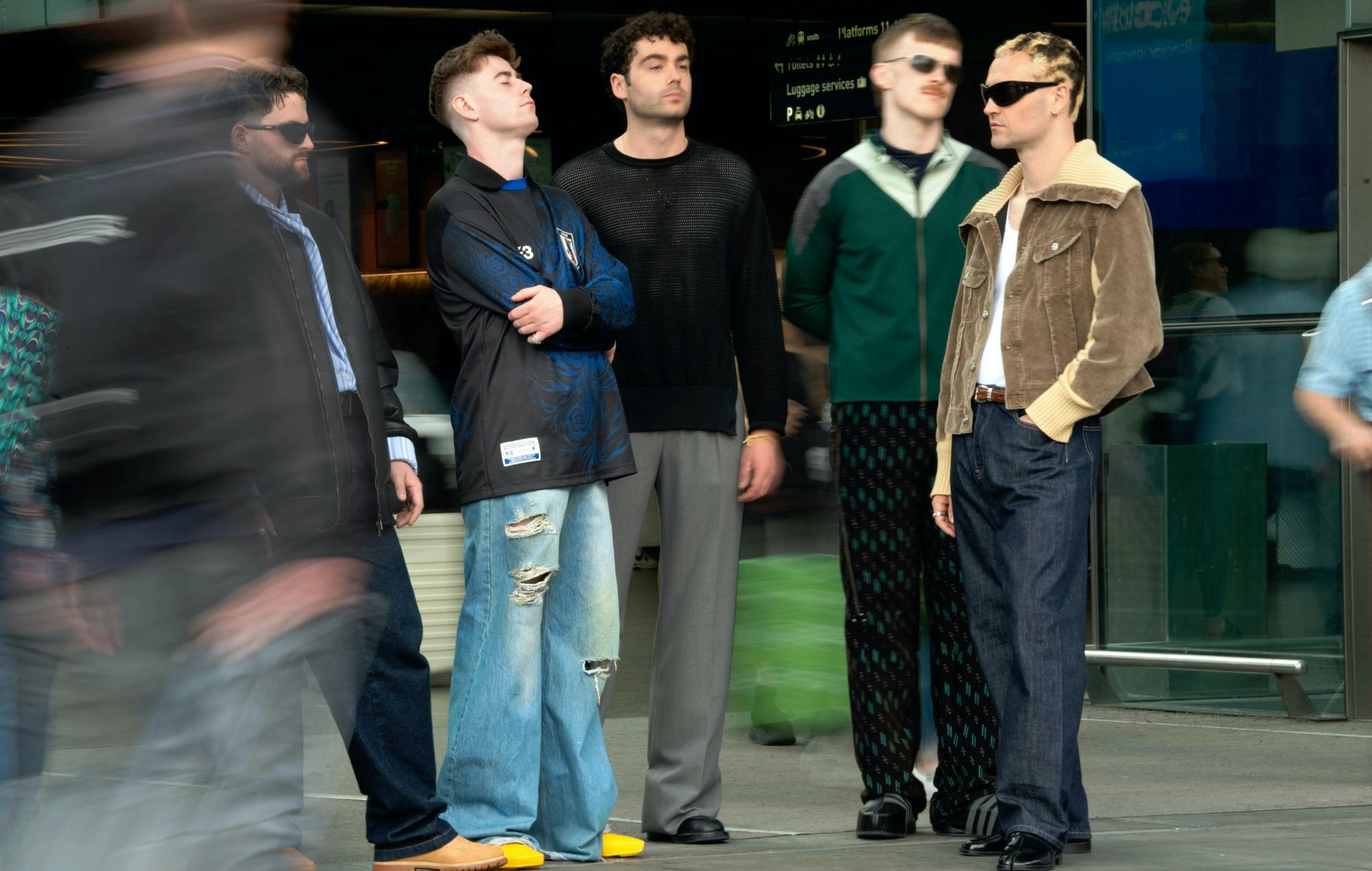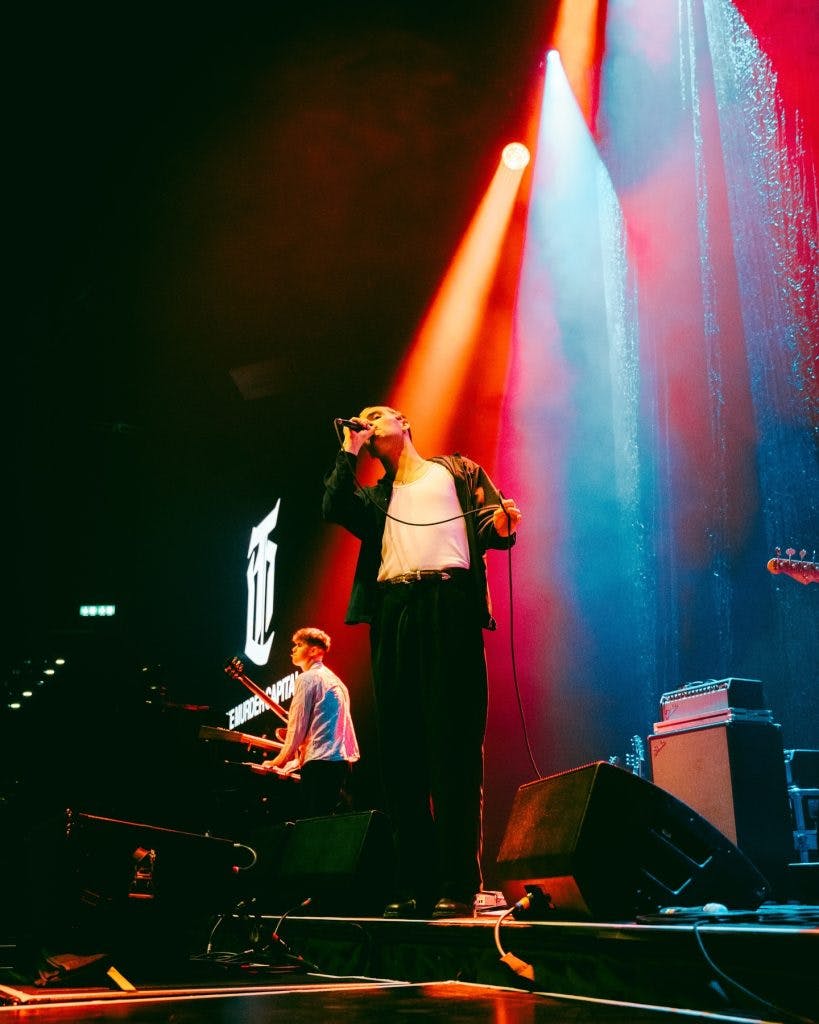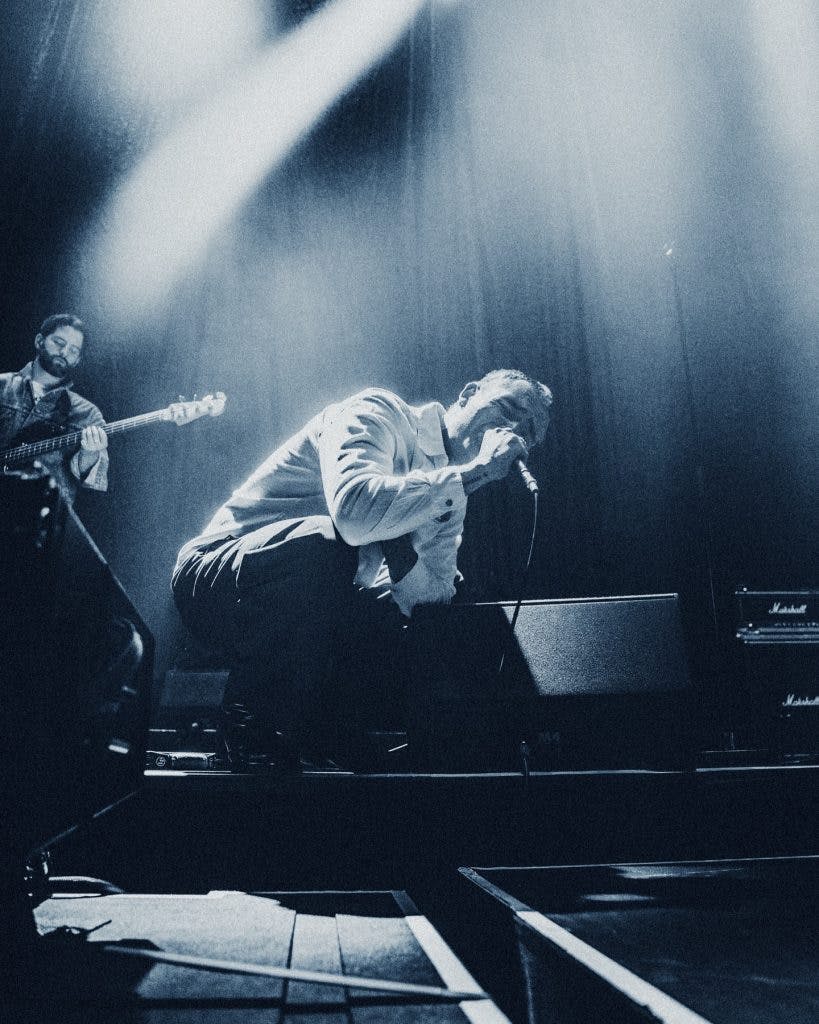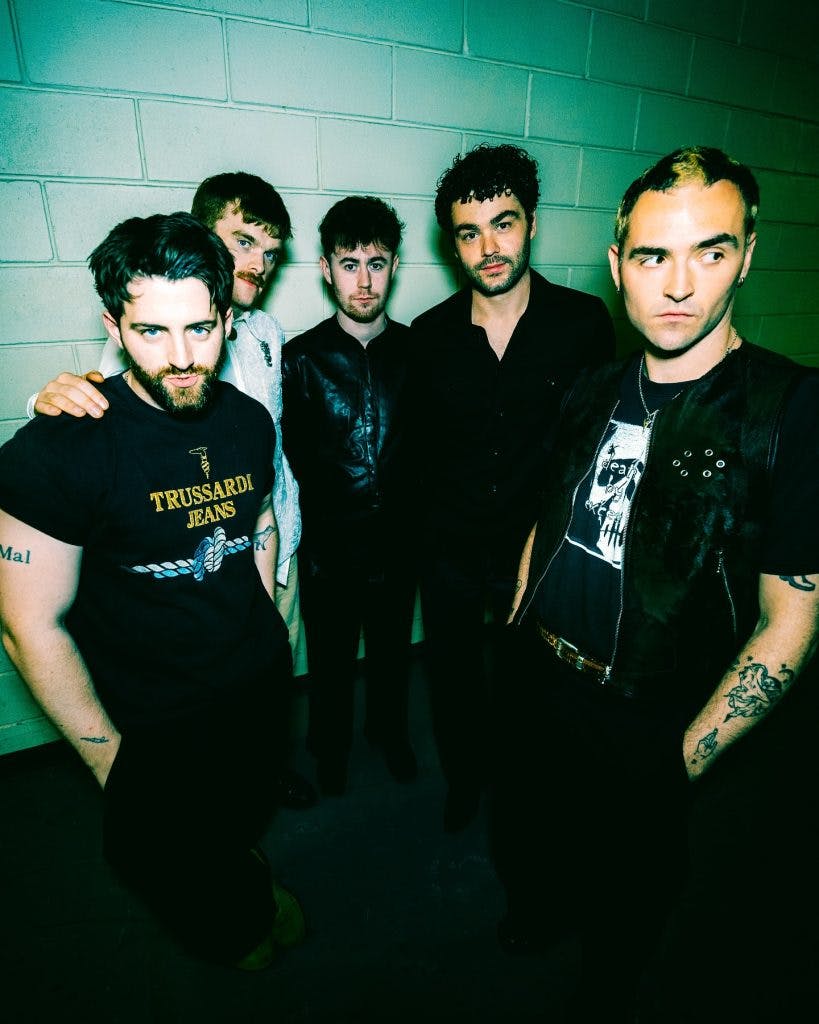
The Murder Capital are a band waiting to explode, and they’ll do it with lavish poetry and distorted guitars. The Dublin’s five-piece 2019 debut When I Have Fears was drenched in grief after a close-friend took his own life, and it was expressed by musicians who sounded far more realised and experienced beyond their years. However, what followed wasn’t a steamroll of output but instead a moment of limbo, and silence followed them into the pandemic and out of it. It was only in 2022 when they released their followup, Gigi’s Recovery, another beautiful record that was sonically more expansive than the last. It felt like they had once again found their feet. Now, they return with their third record, Blindness. This time around, it’s time to take off.
The path towards creating Blindness wasn’t easy, however, and lead singer James McGovern admitted that “everything changed this time.”
“We shifted and changed a lot, because recording an album is such a tough, long process. We spoke about this extensively for Gigi, but being in the countryside in Wexford together for nine months meant having too much time to write and overthink the music.
“Instead of doing a long period of time in one place this time, we did two weeks in Dublin, Berlin, and London. And then we went out to LA and did ten more days before we started recording. It was geographically a different spot every time, which massively helped. Structurally and integrally, we knew what we wanted the songs to be, but it was also open to interpretation once we got into the studio this time.”

Blindness was made while listening to a healthy diet of The Cure, Velvet Underground and electronic duo Suicide. Yet its influences only took it so far.
“You can set out to start working, and have an idea of how you want it to go. You can try, but in the end it’s a bit of a folly really, because you just never know which way it’s going to take you. We all just agreed to get right into the feeling of the tunes, and to cut the fat off what we were writing.
All originating from Dublin, the band have naturally spread their wings and moved around the world, with members now living in Paris, Berlin and London.
“When you’re in a band, especially at the beginning, it’s almost necessary that you all live in the same place. I think when a band is working well, everyone’s sort of in this rhythm together, and they’re living together. Whereas now, we know each other so well, and it’s like a family. At a certain point, we have to let everyone just live wherever they want to live”.
Being away from Dublin means the band have had to reflect on the city’s issues from afar. Homelessness, racism and a housing crisis are just some of the problems the capital of Ireland has had in recent years.
One of the songs on the album, ‘Love Of Country’, directly explores the theme of patriotism, something James says can sometimes be, “innately linked to xenophobia”.
“Growing up, I found that conflicting. We know why the anti-British rhetoric was on the playground in Ireland, but at the same time, it’s kind of soul splitting stuff. The people who perpetrated those crimes against our nation, mostly aren’t alive. I remember a kid in my school, who’s dad was from England, would get a lot of stick.”
More recently, Dublin is a city where immigration has increasingly become a topic of discussion, never more so than after the riot that took place in 2023 in relation to the subject.

“I just don’t know where we get the right to have a say. We all know that Ireland has one of the most widely populated immigrants worldwide. You know, we’re everywhere. We were forced to leave because of the genocide and the famine, so I don’t think we have the right to be beholding to a piece of land beyond its culture. We can be proud of its culture, and protect it in a way that’s inclusive and inviting people into it. The more immigration happens, the more the melting pot creates these new connections and possibilities, which I have a lot of hope for.
“It’s easy to point out what’s difficult about the immigration in that there are clear cases where our government isn’t handling the influx of people that would actually work and benefit everyone, which is tantamount to what the Irish government does. They just do it badly. They cut corners.
Despite its flaws in some cases, McGovern remains a patriotic person, and Dublin City still evidently remains a beating pulse in the life of The Murder Capital. Like with the rest of the island, the passing of The Pogues singer Shane MacGowan cut a bleeding wound for the frontman. The album features a track named, ‘Death Of A Giant’, which the band wrote after the Dublin procession for the late artist.
“I’m proud to be from Ireland. I love its culture, it’s given me so much. Shane was a part of that, a deeply natural artist, a poet in every sense of the word. His music and his lyricism is just a part of growing up here, whether you’re only getting into it later or it’s been played to you since you were born. It bleeds into you.
“He was one of these great icons and artists, who there aren’t a huge amount of anymore. It’s like when Bowie and Lou Reed died, and you’re left counting your living heroes on one hand.”
With both MacGowan and xenophobia, the band’s topics of songwriting traverse from deeply personal issues of grief, to worldwide struggles. With Blindness, it felt harder to ignore the latter.
“Everything is completely politicised at the moment. All of the cultural focus is on politics. From an artistic point of view it’s difficult, because it’s sad. Obviously, this isn’t at all comparing anyone’s actual struggles, but for example, what’s happening in Palestine is an unimaginable struggle. But from a purely artistic point of view, it’s tough because it doesn’t feel like there isn’t much room in the world for art. But you know, in these times, more than ever it feels like the time to create art. It feels like what’s needed.”

With two albums in as many years, McGovern and the rest of the band have clearly found a rhythm of inspiration. It took four years for them to return after their widely acclaimed album, but they’ve returned very shortly after their sophomore record, and have even begun to work on their fourth album before Blindness has even come out.
“I’ve changed my mindset around (pressure). Honestly, I just want to work. When it comes to writing, life is happier for me when there’s something jingling around in my pocket, like a new idea. I feel more connected to myself.”
“With gigs as well, when it’s good, it’s really good. I really think about how individual our lives have become. Individualism is such a part of Western society, and I think gigs are the antidote to actually feeling together, that you’re a part of something.”
The Murder Capital recently toured with the legend Nick Cave, which James says was the most “tangible chapter” in the band’s success so far. But as for his proudest moment, it’s much simpler than that.
“The fact that we’re still a band. It’s an absolutely mad relationship to have, and a beautiful thing.”
The Murder Capital’s third album, Blindness, will release 21st February 2025.
Words by Niall McGreevy
